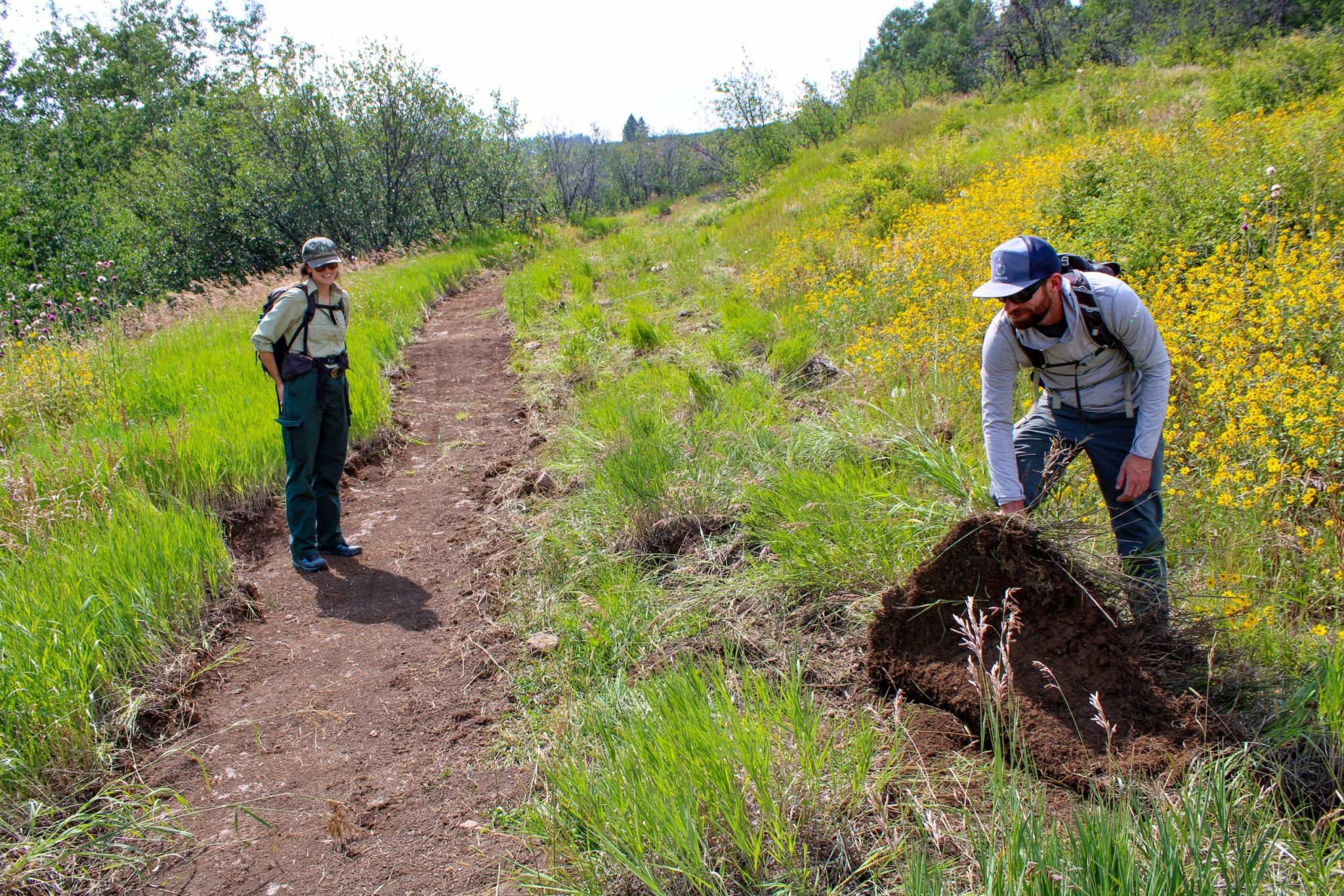Trump administration says Colorado won’t be included in push to develop more US Forest Service land. Environmentalists still worry.

When U.S. Agriculture Secretary Brooke Rollins announced on Monday that her department would be opening up more US Forest Service land to development, she did so with the caveat that just two states — Colorado and Idaho — would not be impacted.
Rollins, who serves in President Donald Trump’s cabinet, unveiled the plans during a meeting of Western state governors in Santa Fe, where she told reporters that the Agriculture Department would be rescinding the 2001 “roadless rule” established under former President Bill Clinton.
The rule, hailed by conservationists as a landmark preservation effort, protects roughly 58.5 million acres of backcountry Forest Service land from road construction, logging and other development.
“For too long, Western states, especially those with large swaths of land administered by our incredible Forest Service, have been inhibited from innovating because of burdensome regulations imposed by the federal government,” Rollins said.
Rollins called the roadless rule “misguided,” adding that it prevents the Forest Service from thinning and cutting trees to prevent wildfires. She also said locking up wide swaths of backcountry land from development, like roads, limits access for firefighters during emergencies.
“After the repeal of this rule, we are going to go back to common-sense forest management to ensure our forests are here for generations to come,” Rollins said.
Colorado and Idaho, however, are unique in that they have their own state-level “roadless” protections under a carveout granted to them by the federal government. Colorado adopted its version of the Clinton-era decision in 2012, while Idaho did so in 2008.
Rollins, responding to a question from Colorado Gov. Jared Polis following her announcement, said neither of those states would be impacted by the federal changes.
Spokespeople from the USDA and Polis’ office both confirmed on Tuesday that Colorado wouldn’t be affected.
Approximately 14.5 million acres — 22% of Colorado land — is managed by the Forest Service, with the state’s roadless protections applying to just under a third of that land.
Examples include the Maroon East Roadless Area at the base of the Maroon Bells and the Tenmile Roadless Area, which is traversed by both the Continental Divide National Scenic Trail and the Wheeler National Recreation Trail, according to the Carbondale-based nonprofit Wilderness Workshop.

Environmentalists say they aren’t yet fully convinced that Colorado will be insulated from the Trump administration’s policy changes. Many want to see more information on how the plan to roll back the roadless rule will be implemented.
“As is typical with the Trump administration, this announcement is short on details,” Mark Pearson, the executive director of San Juan Citizens Alliance, said in an email. “They might not really understand all of the moving parts associated with trying to rescind a 25-year-old federal rule.”
Pearson said Colorado’s rule was established under a 2005 amendment to the original Clinton-era decision, which allowed states to petition for their own protections. Former Colorado Gov. Bill Owens initiated the petition process, and it took until 2012 before the state was able to break away from federal policy and adopt its roadless boundaries.
“So, I guess we’ll need to see what Trump actually proposes, and if it is just limited to the 2001 rule or is more expansive,” Pearson said.
Mark Squillace, an environmental lawyer at the University of Colorado Law School, said the state-level exemptions don’t prevent the Trump administration from including Colorado and Idaho in its reversal of protected Forest Service areas.
“These are federal lands,” he said.
Still, Squillace expects that reversing the roadless rule will require an environmental review and public comment process, adding that reversing it would be “wildly unpopular among the general public.”
While Squillace said the Trump administration “has shown a willingness to basically avoid going through public comment processes,” he believes doing so in this instance would land them in court, a fight they would likely lose.

Mike Anderson, senior policy analyst for The Wilderness Society, said even if Colorado is ultimately left alone, the Trump administration’s decision will impact Coloradans’ recreation enjoyment outside the state.
Neighboring states like Utah, Wyoming, New Mexico and Arizona would all be subject to the rollback of the roadless rule.
“While Colorado might retain some of the similar protections that are in the roadless rule nationally, outside of Colorado, there would be the potential for much more new road building and logging, and development in those wilderness areas that cover about 30% of all the National Forest Service lands nationwide,” Anderson said.
He added that it remains to be seen how far-reaching the rollback of federal protections will be.
“I would definitely not put all concerns aside,” he said. “Coloradans will want to be watching what the administration does with the roadless rule.”
The push to open more Forest Service land to development comes as some Republicans in Congress hope to sell off public lands across the West as part of Trump’s “One Big Beautiful Bill.”
The effort is being led by Utah Sen. Mike Lee, whose sweeping proposal to make 250 million acres of federally owned land eligible to be sold was rejected on Monday under Senate rules. Lee has said he’ll revise the measure, hoping to pass it through Congress’ reconciliation process, which comes with strict rules in the Senate.
Rollins on Monday said she is “not familiar with that specific proposal,” but added it is part of the larger discussion around how the federal government manages land.
“Half of the land in the West is owned by the federal government. Is that really the right solution for the American people?” Rollins said. “So, whether it is in Sen. Lee’s idea and whether it is right now, or it’s a conversation for another day, I definitely think it is worth exploring.”
Published on SummitDaily.com.
